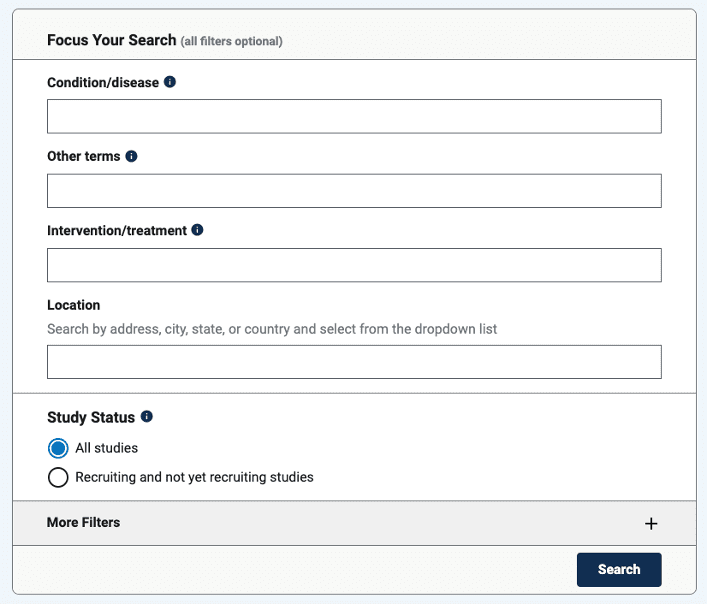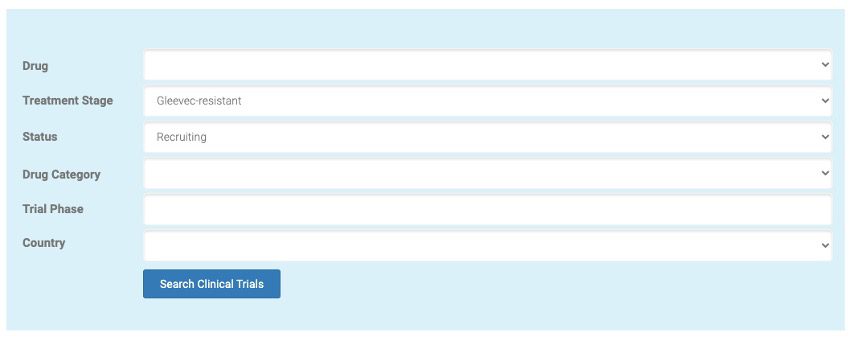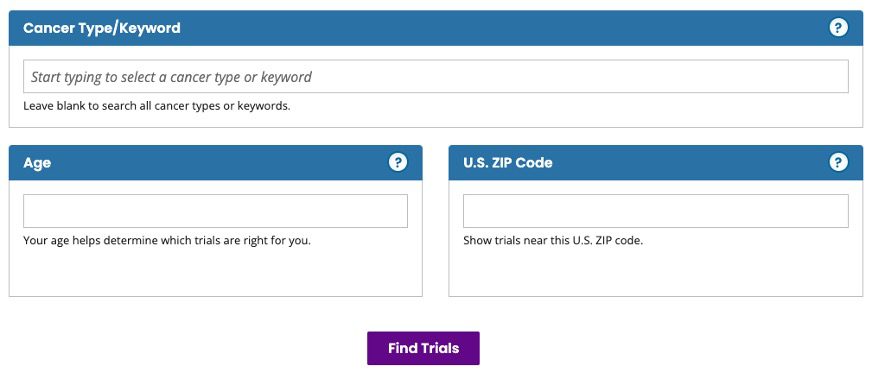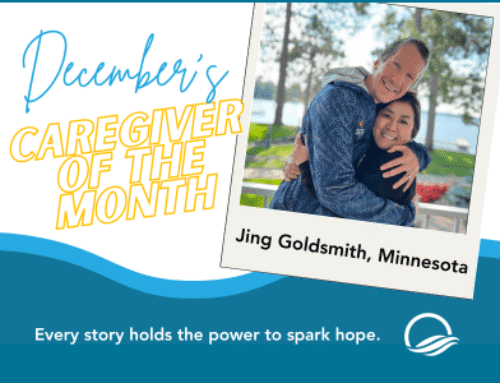 Every Wednesday in 2024 will be dedicated to learning about the clinical trial process and to highlighting the groundbreaking clinical trials focused on gastrointestinal stromal tumors (GIST). We understand the importance of staying informed about the latest advancements in research and treatment options, and we want to empower you with the knowledge to make informed decisions about your healthcare journey.
Every Wednesday in 2024 will be dedicated to learning about the clinical trial process and to highlighting the groundbreaking clinical trials focused on gastrointestinal stromal tumors (GIST). We understand the importance of staying informed about the latest advancements in research and treatment options, and we want to empower you with the knowledge to make informed decisions about your healthcare journey.
Clinical trials are the backbone of medical progress, serving as the driving force behind the development of new treatments and therapies. Understanding the details of these trials is crucial, as it empowers you to make informed decisions about your healthcare, demystifies the process, and ensures you play an active role in shaping the future of GIST treatment.
What are clinical trials?
Clinical trials are scientific research studies done in humans that help us to understand whether a new treatment is safe and effective in treating an illness, such as cancer. Clinical trials are the final step before a drug can be approved for use in all patients.
There are two types of clinical trials: therapeutic and non-therapeutic. Therapeutic clinical trials provide a specific treatment to the patients to study its impact on cancer. Non-therapeutic clinical trials do not give treatments but are “observational studies” and look at different factors that might help us to better understand cancer.
Therapeutic clinical trials have three investigative phases. Each phase tests a different aspect of the drug or treatment.
Phase 1 looks at whether the new drug is safe and what dose of the drug is best. In Phase 1 clinical trials, the drug or treatment may be used for broad types of cancer, such as “solid tumor”, not just GIST.
Phase 2 looks at whether the new drug works or how effective the new drug or treatment is at treating cancer. Phase 2 clinical trials are usually more specific than Phase 1. They will likely be testing a drug specifically for GIST, by may still sometimes look at broader cancer types, like “solid tumors”.
Phase 3 looks at whether the new drug or treatment is better than what is already available to treat the cancer. In Phase 3 clinical trials, the cancer they’re treating is very specific for GIST.
Phase 4 is the approval phase and here long-term effects are observed.

How can I find clinical trials?
There are many ways to find clinical trials, many of which are online databases. You can use these databases to find a clinical trial that is best for you based on your diagnosis and treatment stage, as well as things like specific mutations or drugs you are interested in.
 ClinicalTrials.gov provides comprehensive listings of trials in the US and worldwide. On this website, you can enter in a medical condition to search the database for clinical trials. In the “condition/disease” box, you can be as specific or as general as you want. For example, you could search for “GIST” specifically, or for “solid tumors”.
ClinicalTrials.gov provides comprehensive listings of trials in the US and worldwide. On this website, you can enter in a medical condition to search the database for clinical trials. In the “condition/disease” box, you can be as specific or as general as you want. For example, you could search for “GIST” specifically, or for “solid tumors”.
You could also search for things like specific mutations in the “other terms” box and for things like specific drugs or types of drugs in the “intervention/treatment” box. You can search by location (country, state, or city) in the “location” box.
In the “study status” section, you can filter results based on whether they are currently or soon to be recruiting patients. In an expanded search, you can get even more specific and search for eligibility criteria, phase and type of study, and more. Each clinical trial has its own page that describes the phase, condition, drug or treatment being tested, where the clinical trial is being performed, and eligibility criteria.
Please note: ClinicalTrials.gov is a place to learn about clinical studies from around the world. The U.S. government does not review or approve the safety and science of all studies listed on this website.
 GISTTrials.org – The Life Raft Group has a clinical trial database tailored to GIST patients. This database pulls information from ClinicalTrials.gov, but is more specific for GIST. Some studies on this website might not mention GIST specifically, but you can be sure that these trials are still treating GIST. With this database, you can search for clinical trials based on a category of drug or a specific drug you’re interested in, your treatment stage, the phase of the clinical trial, and the country it takes place in. Like ClinicalTrials.gov, you can find each clinical trial’s page which will have more information about the clinical trial.
GISTTrials.org – The Life Raft Group has a clinical trial database tailored to GIST patients. This database pulls information from ClinicalTrials.gov, but is more specific for GIST. Some studies on this website might not mention GIST specifically, but you can be sure that these trials are still treating GIST. With this database, you can search for clinical trials based on a category of drug or a specific drug you’re interested in, your treatment stage, the phase of the clinical trial, and the country it takes place in. Like ClinicalTrials.gov, you can find each clinical trial’s page which will have more information about the clinical trial.
Please note: Our LRG Science Team compiles this list and reviews these GIST-specific trials throughout the phases.
 National Cancer Institute – This database has a list of all clinical trials that are supported by the National Cancer Institute. This website may not give you a list of all possible clinical trials. Here, you can do a simple search by typing in cancer type, your age, and location to find clinical trials that might be relevant to you. You can also do an advanced search, which allows you to additionally narrow your search by subtype, stage, genetic mutation, trial type and phase, and specific drug or treatment.
National Cancer Institute – This database has a list of all clinical trials that are supported by the National Cancer Institute. This website may not give you a list of all possible clinical trials. Here, you can do a simple search by typing in cancer type, your age, and location to find clinical trials that might be relevant to you. You can also do an advanced search, which allows you to additionally narrow your search by subtype, stage, genetic mutation, trial type and phase, and specific drug or treatment.
Please note: NCI-supported clinical trials are those sponsored or otherwise financially supported by NCI.
If you are interested in a clinical trial and would like support, please reach out to patientregistrydepartment@liferaftgroup.org. The LRG has many options for peer-to-peer support as well including private discussion groups focused on specific mutations and trials, as well as online & in-person patient support groups and GIST Mentors available for patients and caregivers. We encourage you to take advantage of these resources. You are not alone, and we are here to help.



